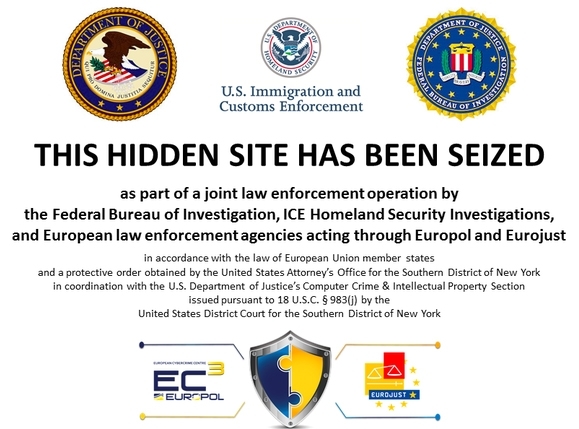News of Silk Road 2.0's shutdown and the arrest of alleged mastermind Blake Benthall was a serious blow to the darkweb community earlier this week but as it turns out, that was only one piece of a much larger puzzle.
Working closely with Europol's European Cybercrime Centre, the U.S. Immigration and Customs Enforcement (ICE), Homeland Security Investigations (HIS) and Eurojust, the FBI carried out a massive sting operation that resulted in 17 arrests and the closure of more than 400 online drug markets.

Operation Onymous also seized Bitcoins worth approximately $1 million, 180,000 euros as well as an unknown amount of drugs, gold and silver.
In an interview with Wired, the head of the European Cybercrime Center, Troels Oerting, said his staff hadn't taken full inventory of the sites removed but it included Cloud 9, Hydra, Blue Sky, Pandora, Topix, Flugsvamp, Cannabis Road and Black Market.
As the publication points out, law enforcement officials haven't - nor are they likely to - fully disclosed how they managed to track down the darkweb sites. Given the sheer volume of sites caught up in the operation, it's entirely possible that officials may have discovered a new vulnerability in the Tor network.
Oerting said it's something they want to keep for themselves. The way they do it, he said, can't be shared with the whole world because they want to do it again and again and again.
Andrew Lewman, a representative for the non-profit Tor project, downplayed idea of a network vulnerability and said it sounds like old-fashioned police work.
